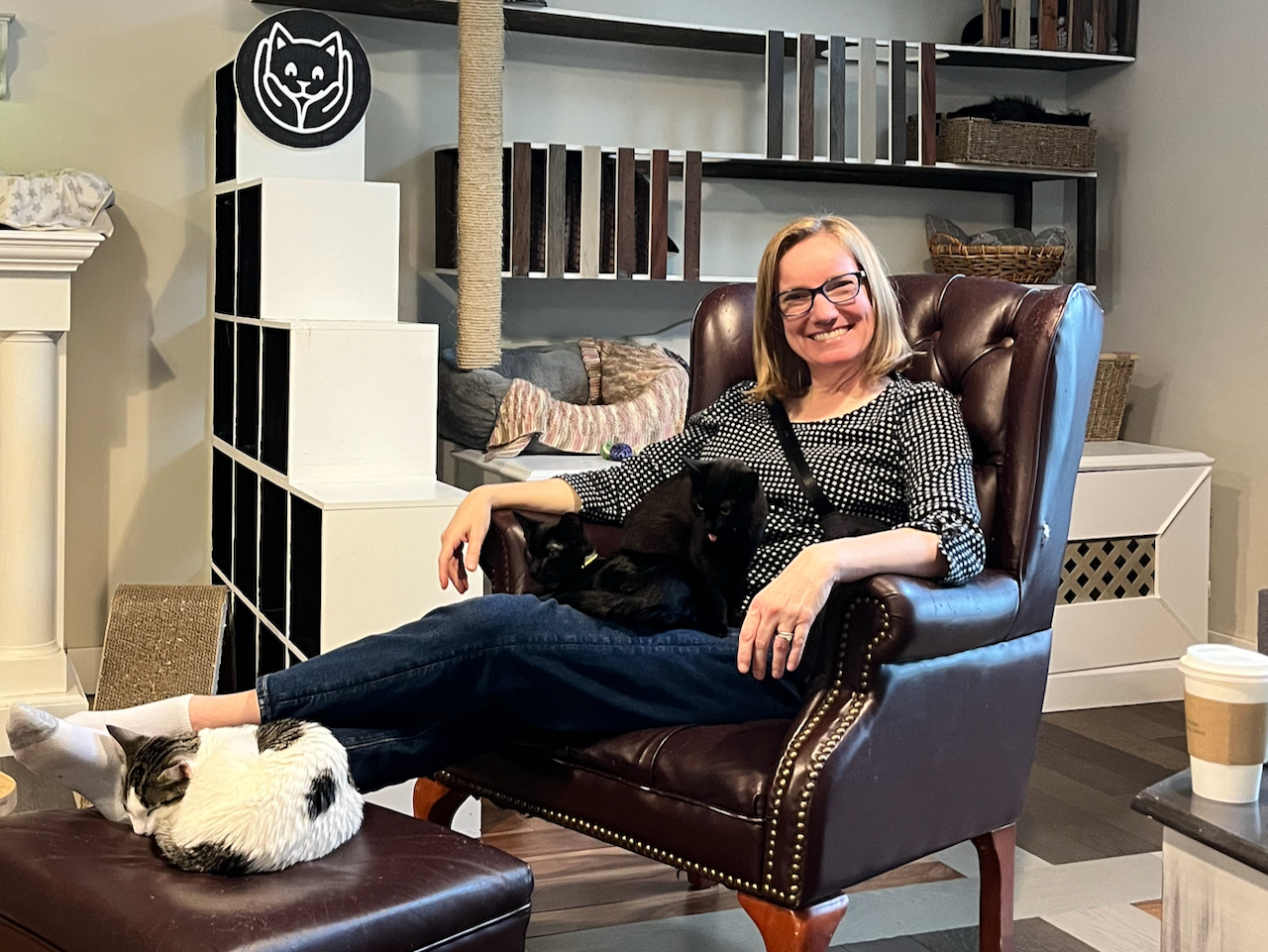This website uses cookies so that we can provide you with the best user experience possible. Cookie information is stored in your browser and performs functions such as recognising you when you return to our website and helping our team to understand which sections of the website you find most interesting and useful.
American Carbon Registry Presents Annual Awards to Celebrate Outstanding Environmental Achievements

SAN FRANCISCO, April 20, 2017 – Last night, the American Carbon Registry (ACR), a nonprofit enterprise of Winrock International, hosted its annual gala reception to recognize and thank its members and partners. ACR Director John Kadyszewski welcomed guests, presented highlights from the year and described the awards to be presented, including the individual Climate Leadership award as well as organizational awards based on ACR’s guiding principles of innovation, quality and excellence.
Kadyszewski presented ACR’s Climate Leadership award to Dr. Sandra Brown, Winrock senior scientist and former director of Winrock’s Ecosystem Services Group, for four decades of work advancing the understanding of the role forests play in the global carbon cycle. Brown, who passed away in February, led arguments in the international negotiations to include forest management and protection as critical tools to combat global climate change. Her science provided the foundation for the area of work now called REDD — Reduced Emissions from Deforestation and forest Degradation. A celebrated international forest carbon expert, Brown published over 200 peer reviewed papers. She also knew how to achieve consensus and was notorious for her clarity of thinking and strong convictions. She was a critical member of the team recognized with the Nobel Prize in 2007, serving as a co-convening lead author on the contribution of forests, agriculture and other land uses to climate change for five Intergovernmental Panel on Climate Change (IPCC) Reports. When she joined Winrock in 1998, Brown wanted to build a team that could apply her science to solving real world problems related to forests and climate change. She knew that many people depend on forests for their livelihoods and pioneered cost-effective methods for measurement, monitoring and verification (MRV) of carbon stored in forests so that landowners, communities, companies and governments could be compensated for the value of carbon services provided by forests and for preserving them.
When asked about the practical applications of her life’s work in a 2010 interview, Brown replied, “I’d like to see a country implement REDD at larger-than-project scale and get someone to finance the GHG reductions. This would demonstrate how to get a transaction done. I’d like to see that happen as evidence that we agree on the science, that the policy is in place, and that the market accepts that the reductions are good and real.”
As her last major endeavor, Brown and her team piloted a national forest carbon accounting system in Guyana to reduce deforestation. The rigorous MRV system resulted in almost $200 million in payments from Norway and established Guyana’s baseline forestry emissions. Consequently, Guyana was the first country in the world to submit a reference level to the UNFCCC that includes forest degradation, solidifying Guyana’s leadership role in REDD and Brown’s enduring legacy.
The Excellence award was presented to the state of Washington for leadership in fighting climate change through the newly adopted Clean Air Rule. ACR jointly recognized the office of Washington Gov. Jay Inslee for directing the development of a regulatory cap on carbon emissions and the Department of Ecology for developing the rule under the state’s Clean Air Act. Under the landmark new rule, Washington businesses such as power plants, petroleum refiners and manufacturers of metal and cement, which are collectively responsible for two-thirds of carbon pollution in the state, are required to cap and reduce emissions starting in 2017. The cap will decline every three years through 2035, gradually covering more emitters. To meet their emissions reduction obligations, regulated entities can reduce emissions on-site, trade emissions reductions achieved beyond the cap, or use emissions reductions generated in the state from a wide variety of project categories, nine of which are cited ACR offset project types. Washington’s Clean Air Rule demonstrates that jurisdictions can effectively adopt carbon markets by leveraging existing infrastructure and streamlined processes.
“While creating one of the nation’s most vital economies, Washington state has always remained true to its reputation as an innovator and a leader in clean energy,” noted Gov. Inslee. “We’re proud to demonstrate that a powerful economy and a commitment to a low carbon, clean energy system go hand in hand, and we thank the American Carbon Registry for recognizing our latest efforts.”
The ACR Commitment to Quality award went to BP America, the last decade’s largest energy investor in the U.S., for the company’s role in the California offset market. Besides being a large compliance entity, BP has leveraged its experience in global carbon markets to help itself and others comply with the California regulation at the least cost and risk. BP America has developed and brought to market offset credits from over 60 projects to date, including forestry, ODS destruction and mine methane capture. These projects not only represent significant volumes of emissions reductions, but they also lead to long-term, sustainable economic development and opportunities for partners and the communities in which they operate. BP’s desire to provide high-quality offsets has made them a leader in the commercialization of Golden offsets, which provide assurance of quality and integrity to compliance entities. BP’s ability to provide Golden offsets reflects an involvement across all levels of their development.
“We aim to build deep and enduring relationships with governments, partners, customers and suppliers. These relationships, such as our long partnership with ACR, are key to our ability to provide high-quality products that also produce enormous benefits for our customers and for local communities,” said Enric Arderiu, Project Originator for BP’s Global Environmental Projects division.
The Innovation award was presented to the developers of two landmark methodologies, one for California wetland restoration and the other for the transition to low global warming potential foams.
ACR honored the Sacramento-San Joaquin Delta Conservancy as the lead agency, HydroFocus as the lead author and both U.C. Berkeley and Tierra Resources for technical support for the development of the methodology for the Restoration of California Deltaic and Coastal Wetlands. Funding for the methodology was provided by the California Coastal Conservancy, Department of Water Resources, U.S. Department of Energy, U.S. Department of Agriculture, the Metropolitan Water District and the Sacramento Municipal Utility District (SMUD).
In the San Francisco Bay Area, more than 90 percent of historic tidal wetlands disappeared in the last 150 years. Over 2.5 billion cubic meters of organic soils have disappeared since delta islands were first diked and drained for agriculture in the late 1800s, resulting in land subsidence up to 25 feet below sea level. Drained and cultivated organic soils in the delta continue to oxidize, subside and emit an estimated one to two million metric tons of CO2-equivalent annually — equal to annual emissions from over 300,000 passenger vehicles.
“We have been pleased to work with ACR and other partners on this methodology and appreciate the recognition,” said Steve Deverel, president of HydroFocus. “Restoration activities that rebuild subsided lands are critical to long-term ecosystem sustainability, are important to reducing the risk of levy failure and sea level rise, and are a significant source of GHG emissions reductions.”
“State and federal funding remains insufficient to address land subsidence that threatens the California water system, and carbon market revenues could help fill the funding gap,” added Campbell Ingram, executive officer of the Sacramento-San Joaquin Delta Conservancy. ”The new ACR methodology provides an incentive to landowners in the Sacramento-San Joaquin Delta, Suisun Marsh and other historically natural wetland areas in California to convert their most subsided and marginal agricultural lands to wetlands, or to produce wetlands crops such as rice, which will stop land subsidence and reverse it over time.””
ACR honored Dentons U.S. for the development of the methodology for the Transition to Advanced Formulation Blowing Agents in Foam Manufacturing and Use. Hydrofluorocarbons (HFCs), which have global warming potentials (GWPs) up to 4,000 times higher than CO2, are commonly used blowing agents that are released during manufacture, use and at end-of-life of foams. Foam blowing agents are used in numerous applications, including refrigerators and freezers; industrial refrigeration systems and refrigerated transport; boats and buoys; and heating, ventilation and air conditioning (HVAC) systems. HFCs are also considered short-lived climate pollutants, so mitigating emissions of HFC is important for limiting near-term climate impacts. Alternatives to HFC-based blowing agents are available but are not commonly used in the foam manufacturing industry due to cost and other challenges. The new methodology is intended to provide access to carbon finance to increase uptake of available advanced technologies and accelerate a transition to low-GWP blowing agents. It also supports California’s goal of reducing HFCs by 40 percent below 2013 levels by 2030, a goal that will require the innovation exemplified in this methodology.
“Innovation is one of Dentons’ driving principles, and when our client Foam Supplies asked us to help develop this forward-thinking methodology, it aligned perfectly with our desire to provide new solutions not only for our clients, but also for the industries in which we serve,” said Jeffrey Fort, partner at Dentons and method co-author. “Following its rigorous peer review and public comment process, we are honored to have our hard work recognized by the American Carbon Registry. This methodology not only supports California’s ambitious climate goals, but also provides a new approach to help supply chains remain lean and green.”




